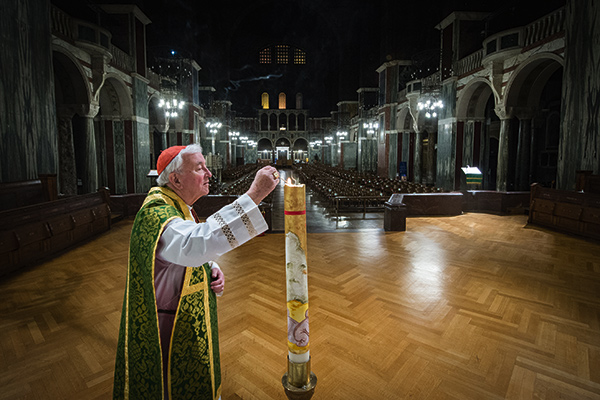To understand why Pope Francis felt he had to act to end the experiment of allowing the old form of the Roman Rite to continue, his biographer spoke to Catholics in an English market town whose parish life and worship has been devastated by a group of traditionalists
The half-hour Sunday morning 9.30 parish liturgy at the Church of the Most Holy Trinity in the south Herefordshire town of Ledbury is spoken and perfunctory, and the 25-odd parishioners leave briskly, just as the traditionalists start arriving. Their Missa Cantata is not until 11.30, but there are rehearsals and eucharistic devotion before the Tridentine liturgy begins. There have been sung High Masses with Communion on the tongue in this yellow-brick church since July 2020, notwithstanding Covid restrictions, attended by up to 40 people driving in from across three counties. The liturgies are followed by the Rosary, and bring-and-share packed lunches in the parish hall until well into Sunday afternoon.
Between the church and the car park, a late-middle-aged woman approaches with a broad smile: am I the one doing the article about what has happened here? As she begins to tell me what I’ve already heard many times by now, tears well in her eyes. “It’s just so awful,” is all she can manage as she chokes up. “It was such a lovely parish. It has all broken down now.”
For Ledbury’s parish priest, Fr Adrian Wiltshire, 71, the pandemic was an opportunity last year to give the pre-Vatican II liturgy pride of place. As a result, many in the parish community felt sidelined. Pope Francis’ July edict restricting and regulating the use of the Traditional Latin Mass (TLM) has meant that Fr Wiltshire is now celebrating liturgies using the 1962 Missal without the permission of his bishop, George Stack of Cardiff. And the parishioners have fresh hope they can get back their parish.




User Comments (1)